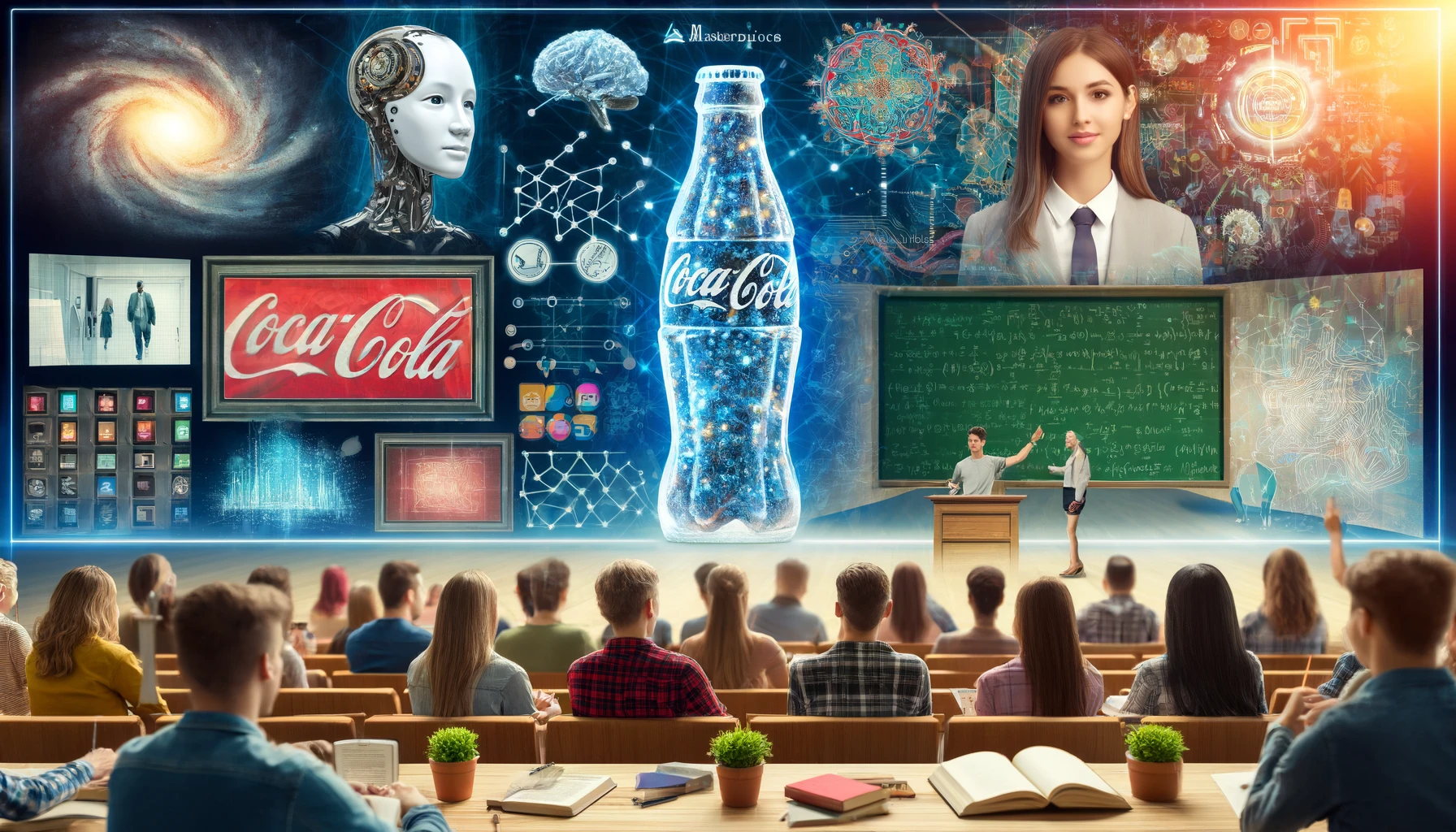Revolutionizing Education and Advertising: The Impact of AI on University Students in TRNC

- Country:
- Turkey
In our digital world, artificial intelligence (AI) is revolutionizing many areas, including education and advertising. Combining these fields can create powerful messages that promote products and educate and inspire. A groundbreaking study in the Turkish Online Journal of Educational Technology by Selim Cavus and Mukerrem Yılmaz explores how AI-supported advertising influences university students in the Turkish Republic of Northern Cyprus (TRNC), using Coca-Cola's AI-generated commercial "Masterpiece" as a case study.
Advertising and Its Societal Influence
Advertising is a powerful tool that shapes consumer preferences and behaviors. Beyond its primary goal of promoting sales, advertising reflects and influences cultural values, gender roles, and social responsibilities. It informs and directs society by mirroring societal expectations and cultural norms. AI, defined as the simulation of human intelligence processes by machines, has introduced new dimensions to advertising. AI technologies, such as chatbots, recommendation engines, and smart assistants, are now commonplace, enhancing how advertisers engage with consumers. AI's ability to analyze vast amounts of data and generate personalized content makes it a valuable asset in the advertising industry.
Educational Impact and Student Perceptions
In education, AI offers significant potential for innovation. AI applications can personalize learning experiences, automate administrative tasks, and provide tailored support to students. However, the integration of AI into education is still a developing field, with ongoing debates about its best applications and potential benefits.
The study aimed to understand how university students perceive AI in advertising and whether AI-generated ads can have educational qualities. Specifically, it focused on a Coca-Cola commercial titled "Masterpiece," which was created using AI technology. The study used a mixed-methods approach, combining both qualitative and quantitative data collection. An online survey was distributed to university students in the TRNC. The participants varied in age, gender, and familiarity with AI. They were shown the "Masterpiece" commercial and then asked to answer questions about their attitudes toward AI and advertising.
Attitude toward AI and Advertising
The participants generally had a positive attitude toward AI and advertising. The survey scores showed a positive correlation between attitudes towards AI and advertising. Those with positive views on AI also tended to have positive views on advertising. The "Masterpiece" commercial was perceived as inspirational and motivational by the students. This suggests that AI-generated ads can go beyond selling products and contribute to educational experiences.
The positive reception of the AI-generated Coca-Cola commercial highlights AI's potential to revolutionize advertising. AI can create personalized and engaging content that resonates with specific audiences, making ads more effective. AI-generated advertisements can also serve educational purposes. By incorporating educational messages and inspirational content, these ads can enhance learning and personal development. This dual-purpose approach benefits both advertisers and audiences. As AI technologies advance, their applications will expand, influencing various aspects of daily life. This study underscores the need for ongoing research to explore AI's multifaceted impacts and ensure its ethical and effective use.
This research provides valuable insights into the impact of AI-supported advertising on university students. The study highlights the positive attitudes towards AI and advertising, the potential educational benefits of AI-generated commercials, and the broader implications for AI integration in various sectors. As AI continues to evolve, its role in advertising and education will likely grow, offering new opportunities for innovation and engagement. This study serves as a foundation for future research, encouraging further exploration of AI's transformative potential and its impact on society.
AI's Role in Transforming Advertising and Education
Advertisers should leverage AI technologies to create personalized and engaging content that resonates with target audiences. By incorporating educational and inspirational elements, AI-generated advertisements can achieve dual purposes, enhancing both commercial and educational outcomes. This approach can make advertisements more meaningful and impactful, benefiting both advertisers and audiences. Educators should explore AI's potential in enhancing learning experiences. AI applications can personalize education, provide tailored support, and offer innovative teaching methods. Collaboration between educators and AI developers can lead to the creation of effective educational tools and resources, helping to provide a more customized and supportive learning environment for students.
Future research should continue to explore AI's impact in various sectors, including advertising and education. Longitudinal studies can provide deeper insights into the long-term effects of AI integration, while cross-disciplinary research can uncover new applications and benefits of AI technologies. By understanding the broader implications of AI, researchers can help ensure its ethical and effective use across different domains.








